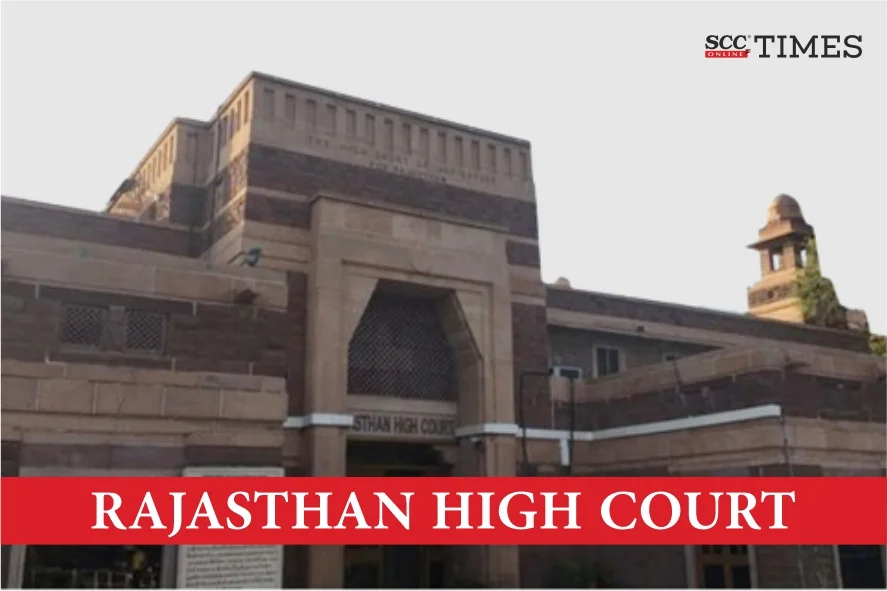Rajasthan High Court: In an application for bail where the petitioners were accused of trespassing the complaint’s house, vandalized the property and set deceased’s body on fire inside the house in the name of following a tribal or customary practice, “Mautana” (compensation to the deceased’s family), a single-judge bench of Rajendra Prakash Soni, J., denied bail due to the serious nature of the offence, especially in the face of harmful tribal practices and severe criminal behavior, the involvement of a large group, and the potential for witness intimidation.
In the instant matter, the complainant filed an FIR after a group of individuals, armed and in large numbers, trespassed into his house on 18-07-2024. The trespass followed a fatal accident involving his son’s taxi on 23-06-2024, which resulted in the death of a girl (the deceased), who passed away on 18-07-2024. The group, which included family members of the deceased, brought her body to the complainant’s house. They vandalized the property, set deceased’s body on fire inside the house, and stole jewellery belonging to the complainant’s family.
The petitioners contended that they were innocent and falsely implicated. They argued that both parties belong to the tribal community, and the incident was motivated by the custom of “Mautana” and “Chadhotra”. The petitioners argued that the allegations were baseless and did not merit denial of bail.
However, the Public Prosecutor opposed the bail, citing the barbaric nature of the offence. It was argued that overwhelming evidence pointed to the petitioners’ guilt, particularly the destruction of the complainant’s house and the desecration of the deceased’s body. The prosecution further stressed on the gravity of the crime and contended that any leniency in granting bail would be inappropriate.
The Court observed that the petitioners and their group acted with the intent to intimidate the complainant’s family by entering their home, vandalizing it, and burning the deceased’s body in a disrespectful and criminal manner.
“Burning a dead body in the complainant’s residence without performing the proper rites and using the body in such a criminal manner is not only highly disrespectful but was also an act of desecration.”
The Court took note of the tribal practice of “Mautana” being used as a coercive tool, indicating a harmful custom being enforced. The Court stated that the involvement of a large group, around 40-50 individuals, heightened concerns about witness tampering or intimidation if bail was granted.
The Court denied the bail application and held that the gravity of the offense, the significant prima facie evidence, and the possibility of witness intimidation warranted continued detention of the accused. The Court emphasised that the petitioners failed to make a strong case for bail and clarified that its observations should not affect the merits of the case.
[Rupa Ram v. State of Rajasthan, 2024 SCC OnLine Raj 3114, Decided on 08-10-2024]
Advocates who appeared in this case :
Mr. Prem Dayal Bohra, Counsel for the Petitioners
Mr. Sharwan Singh Rathore, PP, Counsel for the Respondent






